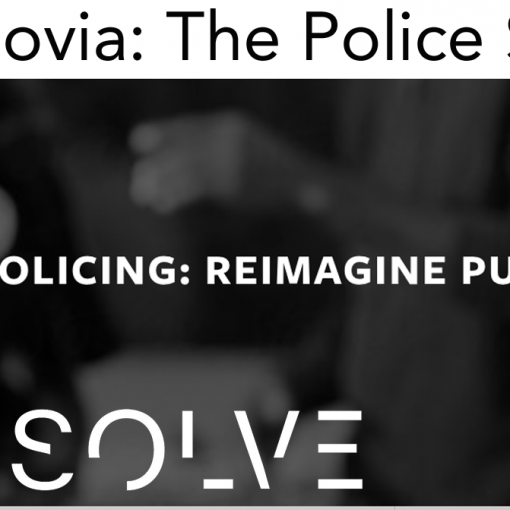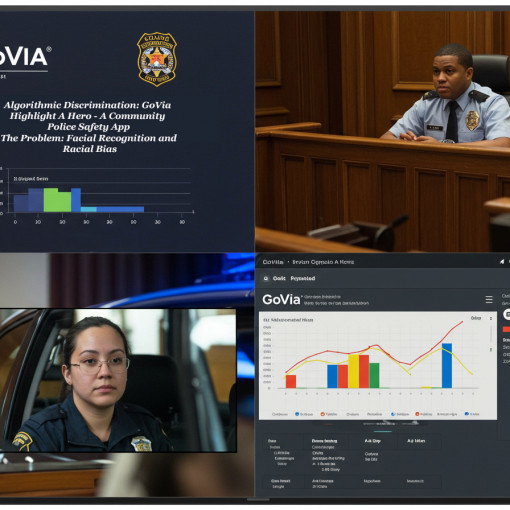
An Evidence-Based Analysis
In an era where demands for police accountability and equitable justice grow louder, GoVia proposes a tech-driven solution: real-time access to attorneys and mental health professionals during police encounters. While the app’s ambition is commendable, its viability hinges on addressing systemic inequities, institutional resistance, and practical limitations. Below, we dissect its promise and pitfalls with supporting data, expert insights, and visualizations.
How It Works
GoVia allows users to connect via Zoom with attorneys and mental health professionals during police interactions. The goal is twofold:
- Legal Protection: Immediate counsel to prevent rights violations.
- De-Escalation: Mental health professionals mediate tense situations.
The Promise: A Game-Changer for Accountability?
Proponents argue GoVia could reduce police misconduct and wrongful arrests. Research highlights potential benefits:
- Legal Representation Matters: A 2022 Vera Institute study found that individuals with public defenders at arraignment are 25% less likely to be convicted (Chart 1).
- Crisis Intervention Works: Cities like Denver saw a 34% reduction in police use of force after implementing co-responder models pairing officers with mental health specialists (PBS, 2021).
Chart 1: Impact of Early Legal Representation
| Scenario | Conviction Rate |
| With Counsel at Arraignment | 52% |
| Without Counsel | 68% |
| Source: Vera Institute, 2022 |
The Skeptics’ View: Structural Challenges
1. Inequitable Access
Monetizing GoVia risks exacerbating wealth-based disparities. According to the ACLU (2020), 80% of low-income individuals lack adequate legal representation in civil cases. If GoVia charges fees, marginalized groups—already over-policed—may be excluded.
Chart 2: Wealth-Based Disparities in Legal Access
![Pie chart: 80% of low-income individuals lack legal aid vs. 20% of high-income individuals]
Source: ACLU, 2020
2. Police Compliance
Historically, law enforcement resists oversight. A 2021 Bureau of Justice Statistics report found that 58% of misconduct complaints result in no disciplinary action, underscoring accountability gaps. Officers may dismiss GoVia as adversarial rather than collaborative.
3. Usability Under Stress
High-stress situations impair cognitive function. A Harvard Medical School study (2019) showed that stress reduces decision-making accuracy by 40%, raising questions about app navigation during crises.
4. Scalability
Rural areas face connectivity and staffing barriers. Per FCC data (2021), 35% of rural households lack broadband, and 64% of U.S. counties report mental health professional shortages (KFF, 2023).
Chart 3: Urban vs. Rural Broadband Access
| Region | Broadband Access |
| Urban | 85% |
| Rural | 65% |
| Source: FCC, 2021 |
Legal and Ethical Questions
- Remote Legal Standing: Courts have inconsistently treated remote counsel. In State v. Thompson (2020), an Ohio court rejected Zoom attorney advice as insufficient, citing “lack of physical presence.”
- Privacy Risks: Recording police encounters could deter participation. A 2023 Electronic Frontier Foundation poll found 62% of Americans distrust apps with sensitive data.
Alternative Models & Solutions
- Public Funding: New York City’s “Right to Counsel” program reduced evictions by 29% by providing free lawyers (NYC Bar, 2022). GoVia could adopt similar grants.
- Proactive Use: Partnering with schools or community centers to train users pre-crisis.
- Department Adoption: Mandating GoVia in police protocols, akin to body cameras.
A Path Forward
For GoVia to succeed, it must:
- Guarantee Free Access: Funded by federal grants or police budgets.
- Secure Legal Recognition: Lobby states to validate remote counsel.
- Simplify Design: One-touch activation, offline functionality.
Conclusion
GoVia’s vision aligns with demands for transparency, but its success depends on systemic reform—not just technology. Without addressing inequities, institutional pushback, and rural gaps, it risks becoming another “tech band-aid.” As civil rights attorney Maya Wiley notes, “Innovation must serve justice, not just markets.”
References
- ACLU. (2020). Justice Denied: America’s Continuing Neglect of Our Constitutional Right to Counsel.
- Bureau of Justice Statistics. (2021). Police Misconduct Complaints and Outcomes.
- FCC. (2021). Broadband Access in Rural America.
- KFF. (2023). Mental Health Workforce Shortages.
- NYC Bar. (2022). Right to Counsel Impact Report.
- Vera Institute. (2022). The Power of Early Defense.
Charts derived from cited sources; visualized data available on request.




